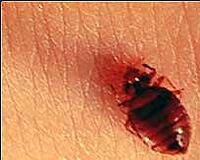HABITAT
Bedbugs and Boards: What to Expect If Your Apartment's Infested
Written by Elizabeth Jensen on December 31, 1969
Elizabeth, a communications executive, came home to her Upper West Side co-op one evening to find a note, in Spanish, from her cleaning lady: "Chinche." That word wasn't in Elizabeth's limited Spanish vocabulary, so she asked the doorman to translate and learned the bad news: She had bedbugs. From there, her building's policies took over….
Arthur Weinstein, an attorney in private practice who has successfully enacted smoking bans in New York, says that many co-ops already have restrictions in their proprietary leases against noxious odors and/or disturbing neighbors. That — combined with recent court cases that say second-hand smoke is a violation of the warranty of habitability — gives boards the right to prohibit smoking in a building.
But only, insists Weinstein, if there is a complaint.
A Management Chief's Plain Talk and Good Advice for Co-op / Condo Boards
Written by Frank Lovece on June 06, 2014
Which qualities do responsible co-op and condo boards possess? What things can boards pursue that genuinely increase apartments' market value? What are some of the specific challenges boards faces today, and where boards can find support and information?
Rarely has anyone answered the above questions in as succinct and straightforward a manner as Martha Goupit, Halstead Management's managing director and executive vice president. In an insightful interview with Keat Foong, executive editor of Multi-Housing News, she offers the kind of plainspoken facts and wisdom that, ironically, the less-than-expert board at my very own condominium complex seems not to want to believe. If others readers out there have similarly recalcitrant boards, maybe her words will be a wakeup call: "You don't believe me? Fine. Would you believe her saying the same things?"
Look Out Below! How to Install a Window Air-Conditioner Safely
Written by Stephen Varone and Peter Varsalona on June 05, 2014
Summertime heat is fast approaching and the sound of air-conditioning hum will soon fill the air. Co-op and condo apartment owners have to pay attention to how their units are installed, as unsafe conditions can cause all kinds of problems.
Danger Below! How to Safety Install Your Apartment's Window Air Conditioner
Written by Stephen Varone and Peter Varsalona on May 18, 2012
Window-mounted air conditioners generally aren't considered a serious safety issue in New York City, probably because there haven't yet been any high-profile cases of a falling A/C unit injuring or killing someone. But a poorly installed air conditioner can pose as much of a danger to pedestrians as unsafe façade conditions, so co-op / condo owners must make sure their window units are adequately secured.
Both The New York Times and BrickUnderground.com offer suggestions on how to spruce up your co-op or condo building’s unimpressive lobbies. The Times speaks with residents about temporary fixes like cleaning doors and walls and adding potted plants to brighten up a dark space when you can’t physically renovate. Brick Underground, on the other hand, chronicles one apartment-dweller's adventure painting and adding decals to an inner hallway to give it a vibrant new feel.
No matter how vigilant your co-op or condo board is — or thinks it is — it can still fall victim to theft. The good news is that there are several simple ways to minimize the chances.
Sublet fees, flip taxes…. Owning a co-op or condo is a complicated process, and sometimes there’s no way to know which fees are necessary and when you’re being taken for a ride. Ronda Kaysen discusses such fees — and when you might want to question them — in this installment of The New York Times’ “Ask Real Estate” column. Scroll down to “Paying to be a Landlord” and “A Flip Tax By Another Name.”
I’ve fallen in love with this fabulous, light-filled apartment, but my attorney is concerned about the building’s finances. Why should I care?
HABITAT SAYS: Buying an apartment is more than the home you hope to live in, it’s an investment in a vertical city. And like most cities, it has an operating budget that must cover its expenses. If your attorney is concerned about the building’s finances, you should ask the following questions.
In Brick Underground’s "Buy Curious" column, Mike Malul of City Connections offers strategies for keeping your monthly co-op maintenance or condo common charges to a minimum. The most obvious? Make sure the building you’re buying into is financially sound. He tells you how and offers four less-readily apparent ideas there as well.








